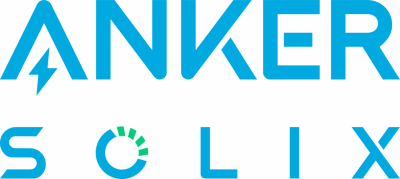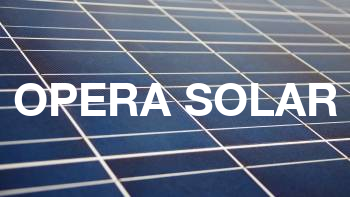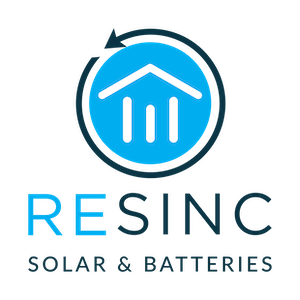

Finn's Anker Solix Batteries Review & Verdict
Finn Peacock has been a Chartered Electrical Engineer since 1998, and is ex-CSIRO
Anker Solix, a Chinese firm, is a relative newcomer to Australia's home battery market. Their solutions look interesting, but still need more time "out in the wild" here to gauge how good they are.
Anker Solix Batteries: Pros & Cons
- C5-M corrosion class rating suitable for coastal locations.
- Lithium-iron phosphate cells.
- Six different modes.
- Backup power in a blackout.
- A newish product - needs more time in Australian conditions.
- Only the hybrid X1 can charge off solar panels in a blackout.
About Anker Solix
Founded in 2011, Anker previously focused on mobile charging and related products. In 2023, the firm expanded into home energy storage via its Anker Solix brand, and in the latter half of 2024 its residential energy storage solutions became available in Australia.
Australian Contact Details
Address: 44 Lakeview Drive, Scoresby VIC 3179
Phone: 1800 929 112
Email: [email protected]
Website
Company Info
Founded by ex-Google software engineer Steven Yang, Anker Innovations originally based its operations in China's Shenzhen, but now its headquarters are in Changsha, Hunan. According to the firm, Anker's and Anker Solix's annual sales surpassed $1 billion worldwide in 2023.
Trivia: In German, Anker means "anchor". It's perhaps not the best choice of names for a home battery.
Anker Solix X1 Battery Systems
The Anker Solix X1 is available in DC (hybrid) or AC-coupled variants.
AC-coupled models available and currently approved by the Clean Energy Council are the X1-P6K-B05-S (X1-P6K-B05-AU) through to X1-P6K-B30-S (X1-P6K-B30-AU), with 5kWh, 10kWh, 15kWh, 20kWh, 25kWh and 30kWh capacities available (1 - 6 battery modules).
A maximum of four battery modules can be used in an X1 single stack, but extra modules can be installed beside it — up to a maximum of six battery modules per power module. A basic 5kWh system offers 3kW output capacity, but models past that offer 6kW or more.
The all-in-one hybrid (DC) single-phase model supports up to 3 parallel systems for a maximum 90 kWh/18 kW. The hybrid three-phase model supports up to 6 parallel systems (up to 180 kWh/72 kW) - but that's not planned for release until Q4 2025.
Solix X1 battery modules use lithium-iron phosphate chemistry, widely recognised for enhanced safety attributes compared to other commonly available types.
These systems have an IP65 (AC coupled) or IP66 (hybrid) ingress rating — so they are suitable for outdoor installation — and an operating temperature range of -20C to +55C. Additionally, the X1 boasts a C5-M corrosion class rating, meaning they can be used in coastal locations.
In the case of a blackout, switchover time is less than 10ms. In off-grid mode, you'll have 6.6kW (AC-coupled or hybrid single phase) or 12.6kW (three-phase hybrid) power output — this requires 3 or more battery modules. But note that only the X1 hybrids can be recharged using solar panels during a blackout.
The X1 features six different energy modes: three for power management, and another three for further energy efficiency enhancement.
Among the interesting features of Anker Solix is a display on the power module unit that lights up as you approach it; and it's of course accompanied by an app for remote monitoring, management and control.
Reports in so far indicate a fairly straightforward installation - it can be wall or floor mounted.
Warranty Details
The warranty period for Anker Solix inverters and batteries is 10 years years each. Note these are two separate warranties. Also note that while the Anker Solix X1 has a C5-M corrosion class rating, the warranty does not cover defects or parts that need to be replaced due to corrosion or rust.
Have you had an Anker Solix X1 home battery installed? Let us know how it's performing by leaving a review.
Anker Solix has 5 solar batteries in our database
Filter by:
Anker Solix Reviews (216)
Show Most Relevant reviews from All time
- 5 star 211
- 4 star 4
- 3 star 0
- 2 star 1
- 1 star 0
View Timeline
31 January 2026
An incentive was offered by LMS Electrical for this review. Learn more here.
15 December 2025
01 December 2025
27 November 2025
11 November 2025
The battery bypass switch can be left on so the backup system will automatically engage if a grid outage occurs. Trying this can trip the safety cutout in the battery inverter if too many appliances are running simultaneously on the backup circuit. This can be avoided by leaving the battery bypass switch set to grid. The battery still powers the house and its inverter won't trip however, if a grid outage occurs, it will be necessary to go the the circuit board and turn on the battery bypass switch. Electrifying Australia recommended to work the battery this way and it serves our purposes well as we hardly ever have grid outages. Also, we can use the household power as normal with full support from the battery without needing to watch what we turn on.
System performance is tremendous as it's a 3 phase battery, so all three phases from the pre-existing 3 phase solar inverter are being used to charge the battery system. This was a major reason for not going with Tesla Powerwall3, as our SolarEdge 3 phase solar inverter would only charge a Tesla battery on a single phase at one third of the total solar output. Two Tesla batteries would not get charged enough in the winter. However, this system should be able to charge on Self-Consumption Mode on most winter days. The odd rainy day can be offset as its a large enough system. A series of rainy days can be overcome with the Time of Use Mode or even Rapid Battery Charging on demand. The system is large enough to ensure that we do not use up the Throughput Warranty, as our house has used no more than 10kWh in a day (overnight). So, the 10 year warranty will not run out early as it could if customers had a system too small and drained it everyday.
This is a beautiful looking system, powder coated metal with rigid plastic vents on the sides. It is very thin and fits well up against the wall. Wall mounted was an option and essential to keep off uneven ground. Up to four, 5kWh modules can be stacked with an inverter on top. This is a Hybrid inverter, which appears to be able to have a further set of solar panels added later if desired (2 MPPT's so two strings possible), which would make apocalypse proof battery backup if ever needed.
30 October 2025
An incentive was offered by Regen Power for this review. Learn more here.
06 October 2025
The battery is great and installation was seamless.
App works very well and is informative and easy to manage.
Flexibility is terrific including scheduling Rapid Battery Charging in off peak, although we have only used this once.
We virtually never download electricity from the grid. Even though the feed in tariff is low it is generally enough to offset the daily supply charge, so daily cost is almost always zero.
We could not be happier with the performance.
03 September 2025




















































































Other brands solely rely on apps.